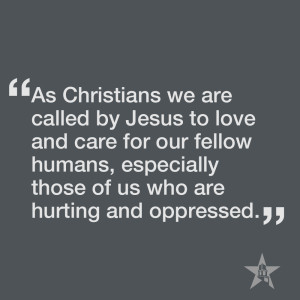In the brief 240 years of its existence, the United States of America has made remarkable progress toward righting many of the wrongs it has done. However, some of the most egregious and oldest among them still exist in various forms to this day. Fittingly, as I began my research for this piece “Barbed Wire” by Kendrick Lamar came on. The song talks about the struggles minorities face in overcoming obstacles to their success placed on them from birth. It was poignant to learn about the plight of the Standing Rock Sioux and other tribes protesting the route of the Dakota Access Pipeline to lines such as “even if you overcame doubt and your living ain’t bad/ Know it’s some barbed wire that’s always in your path.” The barbed wire, in this case, is a lack of concern for indigenous rights displayed by private corporations, state and federal governments.

I won’t give a lengthy introduction to the situation at Standing Rock Reservation. However, there area few things that are important to clear up.
While the current route of the Dakota Access Pipeline does not actually run through the reservation or take land from it, it does cross under the Missouri River, the main water supply for the tribe. The protests center on the possible contamination of the river if the pipe were to leak. Energy Transfer, the company behind the pipeline, has repeatedly stated that fears of a leak are “unfounded” and that pipelines are safe. Two things prove these statements false. First is the history of crude oil pipelines. Since July 2014, when the Dakota pipeline project was publicly announced, there have been at least fourteen major crude oil pipeline leaks, spewing out over four hundred thousand gallons of crude oil. Five of these leaks were from Sunoco pipelines, a close partner of Energy Transfer. Further falsifying the statements given are the company’s own actions. The pipeline was originally slated to run nearer to Bismarck, North Dakota, but was rerouted from this course largely due to concern over the close proximity to the city’s municipal water supply sources.
 The issue at hand is not a question of whether or not pipelines can leak and harm local peoples and ecosystems; they can and have. It is a question of whether or not we as a country are willing to let private companies knowingly gamble with the health and rights of indigenous peoples. And so far, we haven’t said no. If America does not want to echo some of the worst chapters of its brief history, its citizens and government need to take a strong stand for indigenous rights, and we need to do so now.
The issue at hand is not a question of whether or not pipelines can leak and harm local peoples and ecosystems; they can and have. It is a question of whether or not we as a country are willing to let private companies knowingly gamble with the health and rights of indigenous peoples. And so far, we haven’t said no. If America does not want to echo some of the worst chapters of its brief history, its citizens and government need to take a strong stand for indigenous rights, and we need to do so now.
The “WWJD” wristbands gathering dust in our sock drawers add another layer to this question of duty. One answer to that question can be seen in the 500 clergy from all over the country who recently joined tribe members to form a Niobrara Circle of Life on the site of the most recent and most violent clash. Together they sang hymns and prayed for the protesters, policemen, pipeline workers, and government officials involved in the conflict. As Christians we are called by Jesus to love and care for our fellow humans, especially those of us who are hurting and oppressed. In America, as in many countries around the world, indigenous peoples have historically been among the most oppressed members of society, and many still suffer daily from what lingers of this unfortunate reality. Our duty is to show love, empathy and respect for the rights of First Nation peoples. Even if you can’t make it to a vigil, aren’t sure you’re up to organizing a local protest, and don’t have the time to hitchhike to Standing Rock Reservation you can still take the most powerful action of all: pray for those standing on either side of the barbed wire. Pray for the protection of indigenous rights.
Claire is a junior international development major with minors in middle eastern studies and biology.
